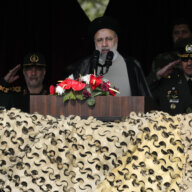 Rikard Larma/Metro. Advocates say many workers who keep the airport going aren’t getting a share of the wealth.
Rikard Larma/Metro. Advocates say many workers who keep the airport going aren’t getting a share of the wealth.
City Council on Thursday expanded the Philadelphia 21st Century Minimum Wage and Benefits Standard ordinance to require city companies and contractors with 25 or fewer employees to pay workers a living wage. The requirement previously applied only to employers with more than five workers.
But Council members and advocates said that, according to Mayor Michael Nutter administration’s interpretation of the law, those rules don’t extend to city subcontractors, such as the companies that employ many of the 141,000 workers at the Philadelphia International Airport.
“Right now there is a low-bid contracting system at the airport for airline-subcontracted workers,” said Melanie DeBouse of advocacy coalition POWER.
“Companies compete based on price alone. They compete without having to adhere to wage, benefit, training or equipment standards. Low wages, high turnover and lack of training requirements are the norm.”
Baggage handler Tamir Elliot, who works for airport subcontractor PrimeFlight Aviation Services, supports four children and shoulders student loan debt, but makes only $7.25 an hour.
“I was immediately disappointed when I found out workers like me are employed by airline contractors and are not receiving the benefits or protections of this law,” Elliot said.
He said high turnover has led to staffing shortages and flight delays. “Baggage handlers help make the airport run, but we are treated like the bottom of the barrel.”
Cheryl Freeman, 54, is a wheelchair attendant and security guard for airport subcontractor Aviation Safeguards. She said she actually makes about two dollars an hour less than when she started the job 12 years ago and has never received benefits or paid sick days.
“I’m diabetic and I’m on medical assistance and food stamps,” she said. “I struggle to pay off student loans for my son, who’s in college. I dedicated a good part of my life to the airport and I feel I am not getting the respect I deserve.”
A question of authority
Bill sponsor Councilman Wilson Goode, Jr. said in his eyes, the minimum wage standards passed by Council already extend to city subcontractors, but the Nutter administration won’t recognize that fact.
“Even through a charter amendment confirmed Council’s authority to set those terms for subcontractors, the administration still claims that authority only extends to contractors,” he said on Thursday.
“I think, eventually, this may be a dispute that ends up in court,” he said. “Because my belief is even if the Council’s authority is limited to creating wage and benefit provisions for contractors … if they subcontract any of the work out, they still have to abide by those.”
That question of authority is a separate issue from the wage standards expansion law, Goode said just before Council took a vote.
“There are two battles we are fighting,” he said. “One we can win today by saying more people should be covered by removing the minimum threshold of 25 employees.”
Nutter’s press secretary declined comment on Thursday pending a thorough review of the legislation.
Job creation jabs
A short round of verbal sparring broke out on the legislative floor when Councilman David Oh expressed reservations that provisions like the minimum wage standard may make Philadelphia less competitive when it comes to attracting employers.
“I don’t think the way to go is to turn low wage, low skill jobs into better paying jobs because, as result, we’re going to lose more jobs,” Oh said. “I’m concerned about this process. I think the solution is to bring more jobs in, not to create higher paid jobs out of low paid jobs.”
“I thank Councilman Oh for his comments, but they’re completely irrelevant to this piece of legislation,” Goode, Jr. shot back. He said a version of the bill was first passed in 2005 and no study has shown that the law or any other legislation like it has slowed job creation.
“What we’re saying here is if we’re going to provide taxpayer dollars to contractors, to franchises, for leases or for concessions, we’re not going to subsidize poverty wage jobs,” he said.




























